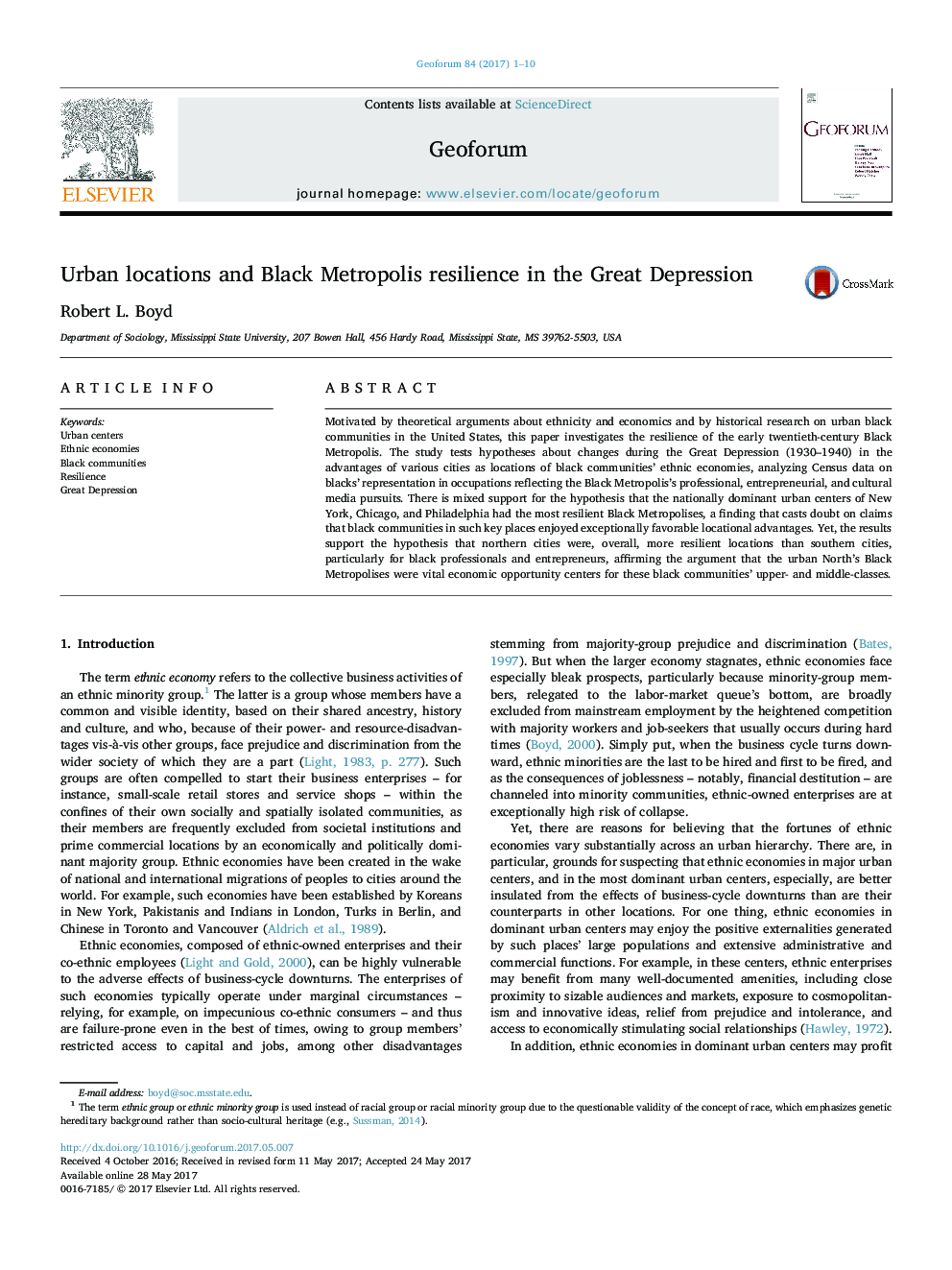| Article ID | Journal | Published Year | Pages | File Type |
|---|---|---|---|---|
| 5073270 | Geoforum | 2017 | 10 Pages |
â¢This study tests hypotheses about the locational advantages of Black Metropolises.â¢Census data on professions, businesses, and cultural media occupations are analyzed.â¢Black Metropolises in dominant urban centers had few locational advantages.â¢Northern Black Metropolises were more resilient than southern Black Metropolises.
Motivated by theoretical arguments about ethnicity and economics and by historical research on urban black communities in the United States, this paper investigates the resilience of the early twentieth-century Black Metropolis. The study tests hypotheses about changes during the Great Depression (1930-1940) in the advantages of various cities as locations of black communities' ethnic economies, analyzing Census data on blacks' representation in occupations reflecting the Black Metropolis's professional, entrepreneurial, and cultural media pursuits. There is mixed support for the hypothesis that the nationally dominant urban centers of New York, Chicago, and Philadelphia had the most resilient Black Metropolises, a finding that casts doubt on claims that black communities in such key places enjoyed exceptionally favorable locational advantages. Yet, the results support the hypothesis that northern cities were, overall, more resilient locations than southern cities, particularly for black professionals and entrepreneurs, affirming the argument that the urban North's Black Metropolises were vital economic opportunity centers for these black communities' upper- and middle-classes.
